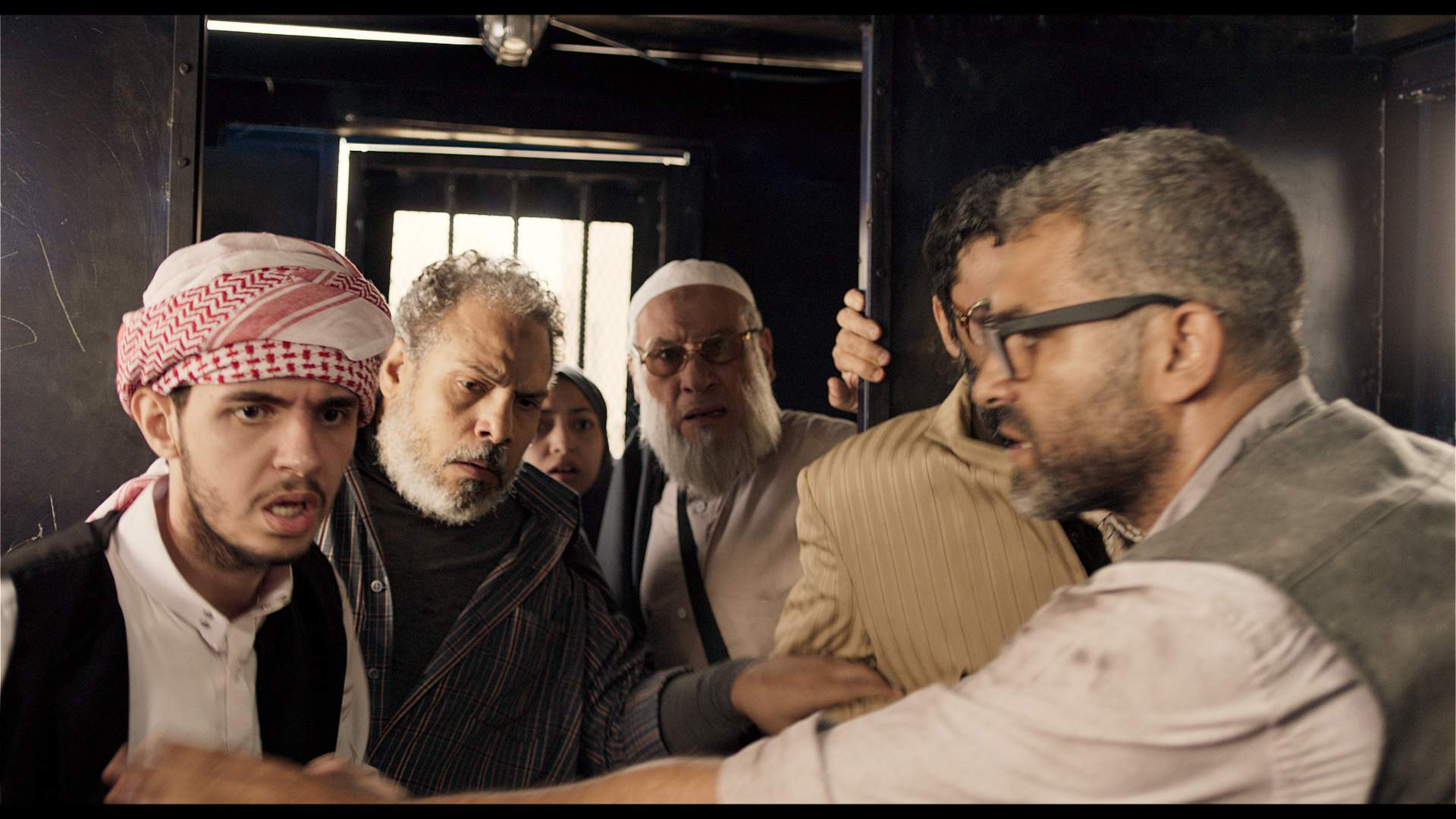Clash
A compelling, claustrophobic vision of the dying days of the Egyptian revolution.
Overview
"Stop punishing me! Get your hands off me!" Egyptian-American reporter Adam (Hany Adel) yells. "Throw him inside," is the Egyptian police's reply, even after he tries to explain who he is and why he's there. The year is 2013, and the country is awash with conflict. Protests ended the 30-year presidency of Hosni Mubarak in 2011, but more began when the Muslim Brotherhood's Mohamed Morsi took power in 2012. Rallies and resistance became commonplace, culminating in millions of people taking to the streets, Morsi's eventual removal, and then more riots. As the days passed, Muslim Brotherhood supporters and opponents alike were rounded up in paddy wagons by the military, just like Adam and his photographer Zein (Mohamed El Sebaey).
Getting comfortable within the scratched metal van is impossible — and, for Clash's 97-minute running time, viewers can't escape that fact. Writer-director Mohamed Diab sets his tense drama inside the vehicle, cramped in close quarters with a growing group of detainees. When they're not peering at the chaos outside through barred windows, or listening to the screams from others confined in a truck parked close by, they're forced to deal with each other over differences of ideology. With the camera never leaving the wagon, we're stuck in there with them as arguments arise and calls for help fall on deaf ears.
Don't go thinking that the film's single location is a gimmick – even if movies such as Alfred Hitchcock's Lifeboat, the Ryan Reynolds-led thriller Buried, and the tank-set war effort Lebanon have toyed with the same idea before. While documentaries such as The Square have served up unflinching reality through on-the-ground footage, Clash uses it's claustrophobic locale to convey just how trapped its characters feel. Though it's easy to say that the narrative aims to offer a microcosm of a complex situation, it's a description Diab's film well and truly earns.
Indeed, after exploring the sexual harassment of women in his debut feature Cairo 678, Diab once again chronicles the struggles of Egyptian society with an astute eye for the problems at its centre. It's not just the film's cramped setting coupled with its barely fictionalised take on actual events that makes Clash so compelling, drawing upon true tales of journalists rounded up in the dying days of the revolution. It's also the sense of balance Diab shows in heightened and horrific circumstances. His feature doesn't judge or pick sides. Instead, it takes a personal approach to looking at the country's tumultuous political troubles, focusing on the folks caught up in the fray. Help and conflict spring from both camps, providing a portrait of a divided nation united only by its anger.
The concept and the content combine to capture the audience's attention, though cinematographer Ahmed Gabr deserves almost as much credit as Diab. Unsurprisingly, you won't find many patient, steady shots here. In fact, frenetic and erratic visuals couldn't be more appropriate. When the truck lurches, shudders and shakes, so does the frame. When fire lights up the sky outside, colour and shadows flicker inside the vehicle. As a result, it's impossible not to be immersed in the characters' harrowing ordeal, and to feel every bump, jump, fight and fear-filled moment.





